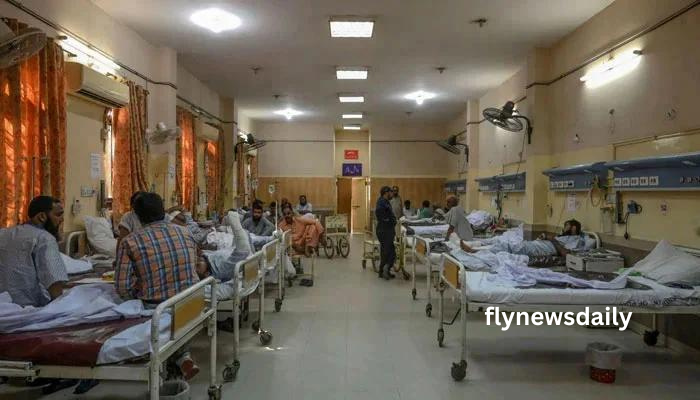
In a recent alarming development, hospitals across Karachi have been placed on high alert following a significant surge in monkeypox cases. The rising number of infections has raised concerns among health authorities, prompting swift action to control the spread of the virus in the densely populated city.
The Current Situation
Over the past few weeks, Karachi has witnessed a sharp increase in monkeypox cases, with several hospitals reporting new admissions daily. The Sindh Health Department has confirmed multiple active cases, leading to heightened vigilance across all healthcare facilities in the region. The spread of the virus has put immense pressure on Karachi’s already strained healthcare system, pushing hospitals to implement stringent measures to manage the influx of patients.
Understanding Monkeypox
Monkeypox is a viral zoonotic disease, meaning it can spread from animals to humans. It is caused by the monkeypox virus, which belongs to the same family as the smallpox virus. Although less severe than smallpox, monkeypox can still cause serious health complications, particularly in those with weakened immune systems.
The virus is primarily transmitted through close contact with an infected person or animal, or by coming into contact with contaminated materials. Common symptoms include fever, intense headache, muscle aches, swollen lymph nodes, and a characteristic rash that often begins on the face before spreading to other parts of the body.
Karachi’s Response
In response to the rising number of cases, Karachi’s healthcare system has taken several proactive steps:
- Isolation Wards: Special isolation wards have been set up in major hospitals across the city to treat monkeypox patients. These wards are equipped with necessary medical supplies and are staffed by trained healthcare professionals to ensure the safety of both patients and medical personnel.
- Public Awareness Campaigns: The Sindh Health Department has launched awareness campaigns to educate the public about the symptoms, transmission, and prevention of monkeypox. These campaigns aim to encourage people to seek medical attention if they experience any symptoms and to follow recommended safety protocols.
- Enhanced Screening: Hospitals have ramped up screening procedures, particularly in emergency rooms, to identify and isolate suspected cases quickly. This measure is crucial in preventing the virus from spreading further within healthcare facilities.
- Vaccination Drive: The government is also exploring the possibility of rolling out a vaccination campaign in areas with a high concentration of cases. Although there is no specific vaccine for monkeypox, the smallpox vaccine has been shown to provide some protection against the virus.
What You Can Do
As Karachi battles this monkeypox outbreak, it is essential for residents to remain vigilant and take precautionary measures to protect themselves and others. Here are a few steps you can take:
- Practice Good Hygiene: Wash your hands frequently with soap and water, and use hand sanitizer when soap is not available.
- Avoid Close Contact: Avoid close physical contact with individuals who exhibit symptoms of monkeypox, such as a rash or fever.
- Stay Informed: Keep up to date with information from credible sources, such as the Sindh Health Department, and follow any advisories issued by local health authorities.
- Seek Medical Attention: If you develop symptoms, seek medical attention promptly and follow the guidance provided by healthcare professionals.
Conclusion
The surge in monkeypox cases in Karachi is a stark reminder of the challenges posed by emerging infectious diseases. While health authorities and hospitals are doing their best to contain the outbreak, public cooperation is critical in preventing the further spread of the virus. By staying informed and following recommended precautions, Karachi residents can help protect themselves and their communities from this growing health threat.



